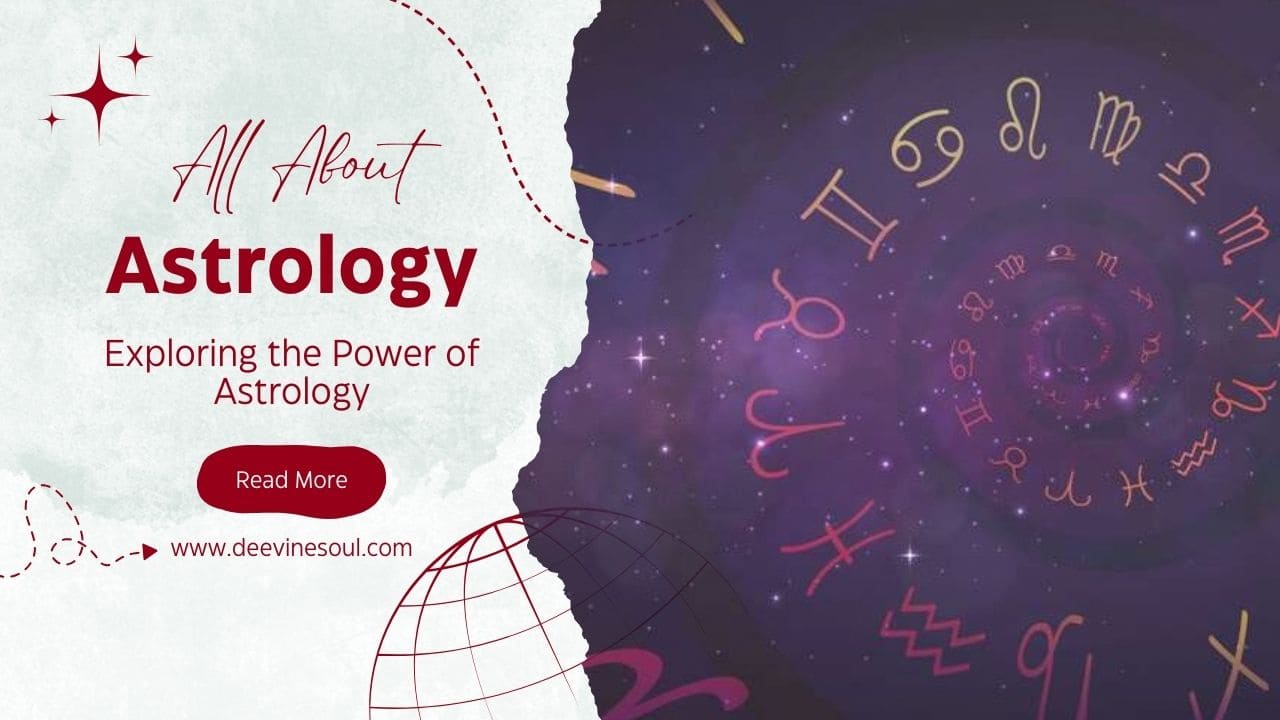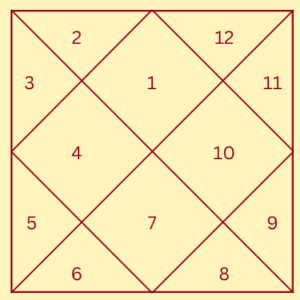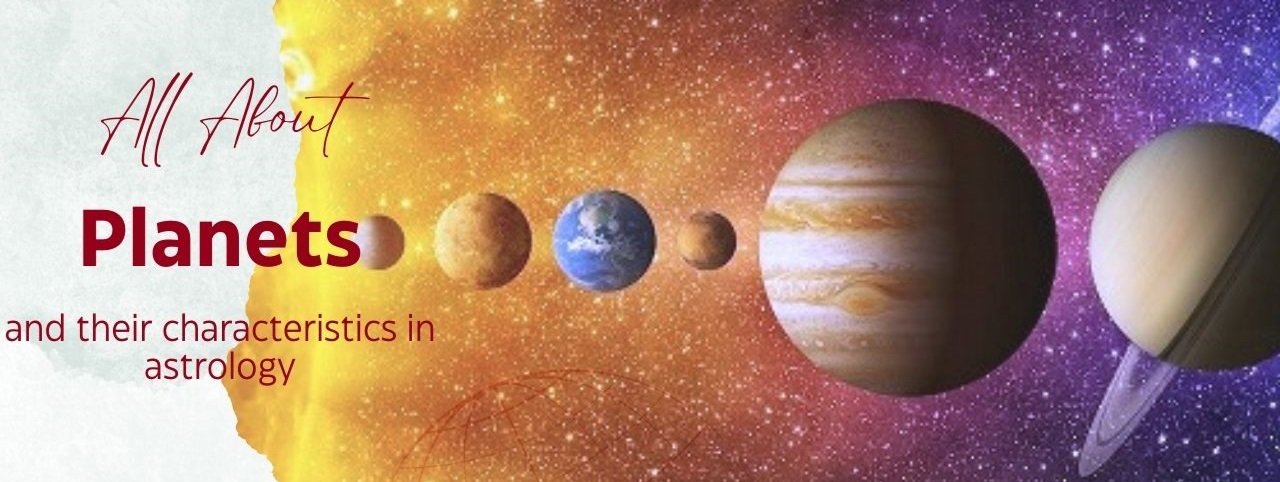Astrology Birth Chart Houses and Planets
Astrology is an ancient practice that seeks to understand the influence of celestial bodies on human affairs and natural events. It has been practiced for thousands of years and has its roots in the observations and interpretations of the movements of planets and stars. While some people dismiss astrology as mere superstition, others find deep meaning and guidance in its principles.
How Astrology Works: Astrology is based on the belief that the positions and movements of celestial bodies can influence human affairs and natural events. According to astrological principles, the alignment of the planets at the time of a person’s birth can have a profound impact on their personality, behavior, and destiny. Astrologers use birth charts, which are based on the date, time, and location of a person’s birth, to interpret these influences and provide insights into their life.
History of Astrology: The origins of astrology can be traced back to ancient civilizations such as Mesopotamia, Egypt, and Greece. These early astrologers believed that the positions and movements of celestial bodies could foretell the future and reveal hidden truths about an individual’s personality and fate. Over time, astrology spread to other parts of the world, including India, China, and Europe, where it developed into different forms and traditions.

Birth Chart Represents
Birth charts, also known as natal charts or astrological charts, are a fundamental tool used in astrology to map out the positions of the planets and stars at the time of a person’s birth. These charts are based on the date, time, and location of a person’s birth and are used to provide insights into their personality, behavior, and life path.
Components of a Birth Chart
A birth chart is divided into twelve sections, known as houses, which correspond to different areas of life such as career, relationships, and health. Each house is ruled by a different zodiac sign and planet, which influence the themes and events associated with that house.
The planets in a birth chart represent different aspects of the self and the world around us. For example, the sun represents our core identity and ego, while Venus represents love and relationships. The positions of these planets in the houses of the birth chart can provide insights into how these aspects of our lives are influenced by the cosmos.
Birth charts are a fundamental tool used in astrology to map out the positions of the planets and stars at the time of a person’s birth. These charts are used to determine a person’s sun sign, moon sign, and rising sign, which are believed to influence different aspects of their personality and life. By analyzing a person’s birth chart, astrologers can provide insights into their strengths, weaknesses, and life path.
In Vedic astrology, Nakshatras play a crucial role in determining various aspects of an individual’s life. They are deeply connected to the zodiac signs, planets, and houses in the birth chart, creating a complex and nuanced system of astrological interpretation.
Personalized Insights
A birth chart is unique to each individual, providing personalized insights into their personality traits, strengths, and weaknesses. It can help people understand themselves better and make informed decisions about their lives.
Life Path and Purpose
Astrologers believe that the positions of the planets in a birth chart can reveal a person’s life path and purpose. By studying the birth chart, astrologers can provide guidance on how to navigate life’s challenges and fulfill their potential.
Relationships
Birth charts are also used to analyze compatibility between individuals in relationships. By comparing the birth charts of two people, astrologers can determine the potential challenges and strengths of the relationship.
Timing of Events
Astrologers use birth charts to predict the timing of significant events in a person’s life, such as career changes, relationship milestones, and health issues. This can help individuals prepare for and navigate these events more effectively.
Self-Discovery and Growth
Studying one’s birth chart can be a powerful tool for self-discovery and personal growth. It can help individuals uncover hidden talents, overcome challenges, and align with their true purpose in life.
Guidance and Support
For many people, consulting an astrologer and exploring their birth chart can provide valuable guidance and support during difficult times. It can offer reassurance and a sense of direction when facing life’s uncertainties.
By understanding their own birth chart, individuals can gain insights into their relationships with others. This can lead to more meaningful connections and improved communication with friends, family, and partners.
Darakaraka signifies the qualities and traits of a person’s future spouse, acting as a key indicator of their marriage.
Birth Chart (kundli) Houses Meaning

There are twelve houses in a natal chart, each corresponding to specific themes and experiences. The houses provide a framework for understanding how planetary energies manifest in various areas of an individual’s life.
Each house is associated with different aspects of life, such as personality, relationships, career, and spirituality, and they play a crucial role in interpreting an individual’s birth chart.
Understanding the houses in astrology can provide valuable insights into different aspects of life and help individuals navigate challenges and opportunities with greater awareness and understanding.
The first house represents the self, personality, appearance, and how others perceive you. It is associated with new beginnings and personal growth.

The second house rules money, possessions, values, and self-worth. It reflects how you earn, spend, and save money, as well as your attitudes towards material possessions.

The third house governs communication, siblings, short trips, and learning. It indicates how you communicate with others and your intellectual interests.

The fourth house represents home, family, roots, and emotional foundations. It reflects your relationship with your family and your sense of security and belonging.

The fifth house rules creativity, self-expression, romance, and children. It indicates your creative talents, hobbies, and approach to love and relationships.

The sixth house governs health, daily routines, work, and service. It reflects your attitude towards work, health habits, and how you approach your daily tasks.

The seventh house represents partnerships, marriage, and open enemies. It indicates your approach to relationships and the type of partner you are attracted to.

The eighth house rules transformation, intimacy, shared resources, and other people’s money. It reflects your attitude towards change and your ability to trust others.

The ninth house governs higher education, philosophy, travel, and spirituality. It reflects your beliefs, long-distance travel, and quest for knowledge.

The tenth house represents career, ambitions, public image, and reputation. It indicates your professional goals, achievements, and how you are perceived in the public eye.

The eleventh house rules friendships, groups, social causes, and aspirations. It reflects your social circle, ideals, and involvement in community activities.

The twelfth house represents spirituality, hidden strengths, secrets, and the subconscious mind. It reflects your inner world, fears, and spiritual journey.

Planets in Birth Chart Astrology
The planets in astrology are divided into two categories: personal planets and outer planets. Personal planets include the Sun, Moon, Mercury, Venus, and Mars, which are believed to have a direct influence on an individual’s personality and day-to-day life. Outer planets, such as Jupiter, Saturn, Uranus, Neptune, and Pluto, are associated with broader social, generational, and spiritual influences.
Each planet in astrology is linked to a specific zodiac sign and astrological house, which further refines its influence on an individual’s life. For example, the Sun is associated with the zodiac sign Leo and the 5th house, representing creativity, self-expression, and romance.
Understanding the planets in astrology can provide valuable insights into an individual’s strengths, challenges, and life path. By examining the positions of the planets in a birth chart, astrologers can offer guidance on personal growth, relationships, career, and other important aspects of life.

The Sun is often considered the most important planet in the birth chart, representing our core identity, ego, and life purpose. It influences how we express ourselves, our sense of self-worth, and our creative potential. The Sun’s placement in the chart can indicate our strengths, leadership qualities, and areas where we seek recognition and fulfillment.
The Moon represents our emotions, instincts, and inner world. It influences our emotional responses, habits, and needs for security and comfort. The Moon’s placement in the chart can indicate how we nurture ourselves and others, as well as our intuitive and imaginative abilities.
Mercury rules communication, intellect, and the mind. It influences how we think, learn, and express ourselves verbally and in writing. Mercury’s placement in the chart can indicate our communication style, intellectual interests, and skills in areas such as logic, analysis, and problem-solving.
Venus represents love, beauty, and relationships. It influences our romantic and social life, as well as our values and aesthetic preferences. Venus’s placement in the chart can indicate our approach to love and relationships, as well as our attitudes towards money, pleasure, and material comforts.
Mars rules energy, ambition, and assertiveness. It influences how we take action, pursue our goals, and assert ourselves in the world. Mars’s placement in the chart can indicate our drive, courage, and ability to overcome obstacles, as well as our approach to competition and conflict.
Jupiter represents expansion, growth, and abundance. It influences our beliefs, values, and opportunities for growth and success. Jupiter’s placement in the chart can indicate areas of life where we experience growth and abundance, as well as our philosophical outlook and aspirations.
Saturn rules structure, discipline, and responsibility. It influences how we set goals, manage our time, and deal with authority and limitations. Saturn’s placement in the chart can indicate areas of life where we face challenges and obstacles, as well as our ability to endure difficulties and achieve long-term success.
Uranus represents innovation, change, and originality. It influences our need for freedom, independence, and unconventional thinking. Uranus’s placement in the chart can indicate areas of life where we seek to break free from limitations and explore new possibilities, as well as our attitudes towards change and progress.
Neptune rules imagination, spirituality, and mysticism. It influences our dreams, ideals, and connection to the divine. Neptune’s placement in the chart can indicate our creative and spiritual potential, as well as our susceptibility to deception and illusion.
Pluto
Pluto represents transformation, power, and regeneration. It influences how we experience change, crisis, and personal growth. Pluto’s placement in the chart can indicate areas of life where we undergo profound transformation, as well as our ability to confront and overcome obstacles and achieve personal empowerment.
North Node - राहु (Rahu)
Rahu is considered a shadow planet, also known as the North Node of the Moon. It is not a physical planet but a point in the celestial sphere where the path of the Sun intersects with the path of the Moon. In astrology, Rahu is associated with worldly desires, ambitions, and materialism. Its placement in the birth chart is believed to influence a person’s desires and aspirations, as well as their approach to achieving their goals. Rahu is also associated with illusions and may indicate areas of life where there may be confusion or deception.
South Node - केतु (Ketu)
Ketu is the South Node of the Moon in Vedic astrology and is considered a shadow planet like Rahu. It is the point where the path of the Moon intersects with the path of the Sun. Ketu is associated with spirituality, detachment, and renunciation. Its placement in the birth chart is believed to influence a person’s spiritual path and their ability to let go of worldly attachments. Ketu is also associated with past-life experiences and may indicate areas of life where there may be a need to release old patterns or attachments.
Frequently Asked Questions
What are the houses in astrology?
The houses in astrology are divisions of the celestial sphere that represent different areas of life and aspects of the self. There are twelve houses in total, each corresponding to specific themes and experiences. The houses provide a framework for understanding how planetary energies manifest in various areas of an individual’s life.
Each house is associated with different aspects of life, such as personality, relationships, career, and spirituality, and they play a crucial role in interpreting an individual’s birth chart. Understanding the houses in astrology can provide valuable insights into different aspects of life and help individuals navigate challenges and opportunities with greater awareness and understanding.
Why are planets important in the birth chart?
Planets in the birth chart are important as they influence various aspects of an individual’s personality, behavior, and life path. Each planet represents different qualities and energies that manifest in different areas of life. For example, the sun represents the core identity and ego, while Venus represents love and relationships.
The positions of the planets in the birth chart can indicate strengths, weaknesses, and potential for growth. By understanding the influence of each planet in the birth chart, individuals can gain valuable insights into themselves and their life path, helping them to navigate life’s challenges with greater awareness and understanding.
How do the planets influence us?
The planets influence us through their positions in the birth chart, which indicate different energies and qualities that shape our experiences and interactions. Each planet has its own unique influence, and its placement in a particular sign and house can indicate how that influence is expressed in our lives.
For example, a person with Mars in Aries may be assertive and action-oriented, while a person with Mars in Pisces may be more passive and intuitive. The planets act as cosmic forces that influence our thoughts, feelings, and actions, and understanding their influence can help us to better understand ourselves and our place in the world.
Can astrology predict the future?
Astrology is not meant to predict the future with certainty, but rather to provide insights into potential outcomes based on planetary influences. Astrologers believe that the positions of the planets at the time of a person’s birth can indicate certain trends and patterns in their life.
By analyzing these patterns, astrologers can offer guidance on how to navigate future challenges and opportunities. However, astrology is not deterministic, and it is up to each individual to make choices and take actions that will shape their future.
Is astrology a science?
Astrology is not considered a science in the traditional sense, but rather a metaphysical discipline that explores the relationship between celestial bodies and human affairs. While astrology uses mathematical calculations and observations of celestial phenomena, its principles are based on philosophical and symbolic interpretations rather than empirical evidence.
Astrology is a complex and nuanced field that has been practiced for thousands of years, and while it may not adhere to the strict criteria of scientific inquiry, many people find value and meaning in its principles.
